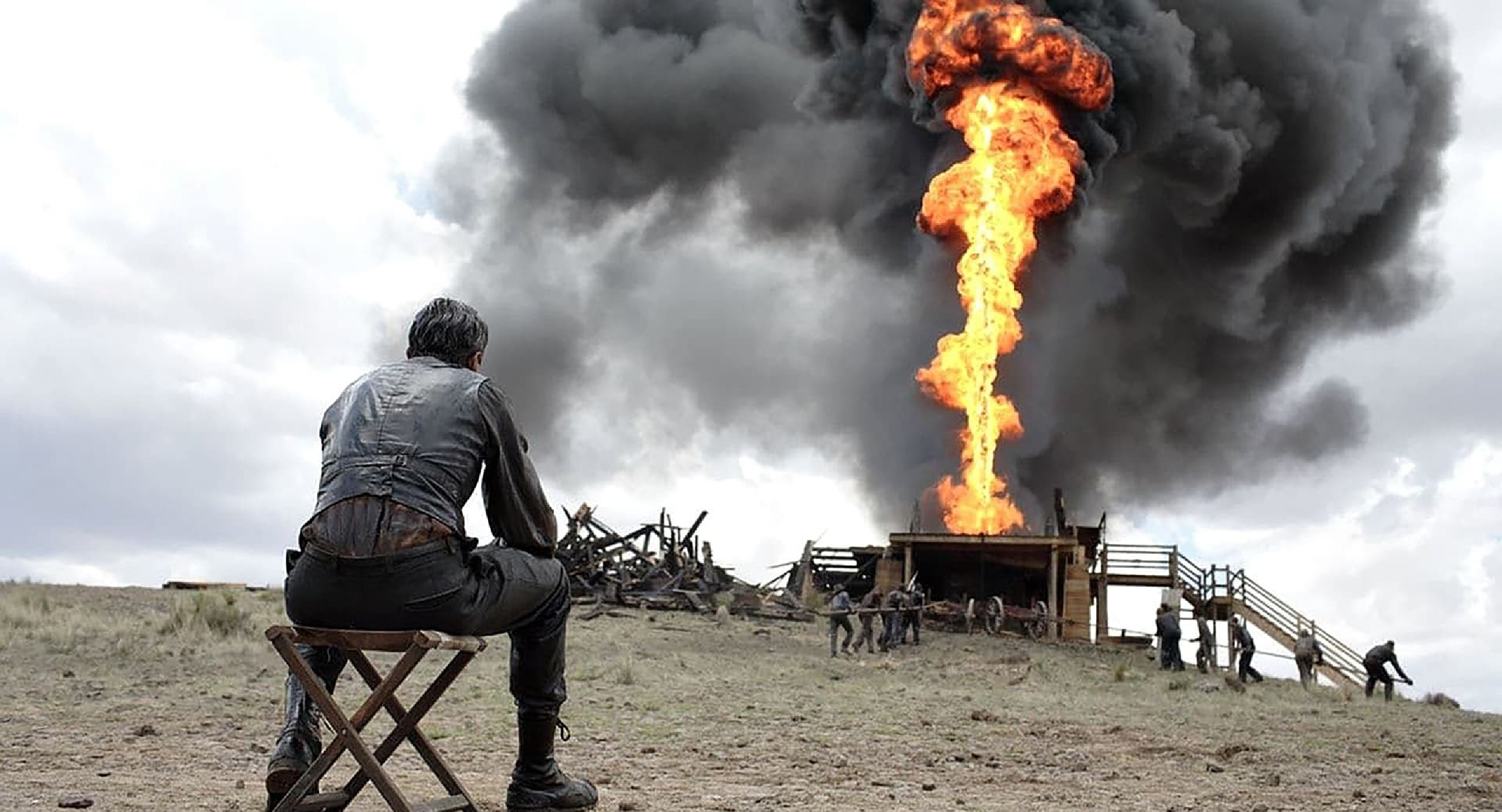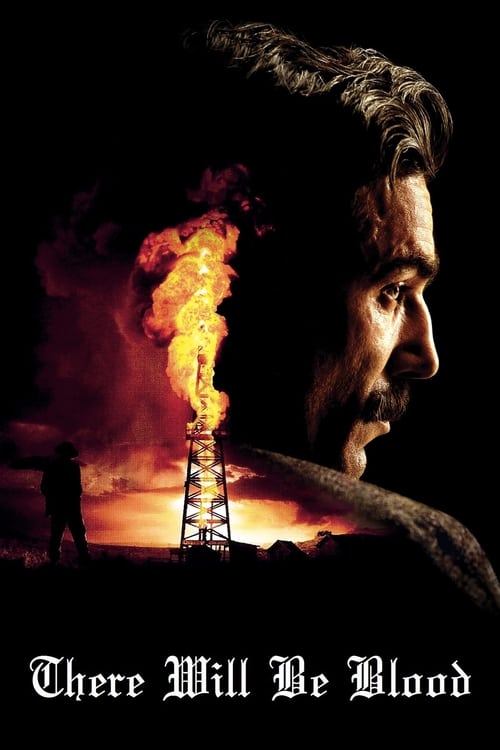There Will Be Blood – Film Review
Published August 31, 2023

Ruthless silver miner, turned oil prospector, Daniel Plainview moves to oil-rich California. Using his adopted son HW to project a trustworthy, family-man image, Plainview cons local landowners into selling him their valuable properties for a pittance. However, local preacher Eli Sunday suspects Plainviews motives and intentions, starting a slow-burning feud that threatens both their lives.
Paul Thomas Anderson‘s There Will Be Blood stands as a monumental testament to the power of filmmaking as an art form. Released in 2007, this magnum opus is an enthralling journey into the depths of human ambition, greed, and the cost of unchecked capitalism. With its masterful direction, spellbinding performances, and unrelenting exploration of complex themes, the film cements itself as a timeless masterpiece that demands attention and contemplation.
Set against the backdrop of the American oil boom in the late 19th and early 20th centuries, There Will Be Blood follows the ruthless and enigmatic Daniel Plainview, portrayed with astonishing intensity by Daniel Day-Lewis. From the film’s opening moments, Day-Lewis’s embodiment of Plainview is a revelation. His magnetic presence fills the screen with a volatile mix of charisma and menace, drawing viewers into his character’s psyche. Day-Lewis’s commitment to the role is evident in every line of dialogue, every gesture, and every piercing gaze. The character’s transformation from a lone prospector driven by ambition to a morally bankrupt oil magnate is a masterclass in acting.
The film’s visual language, captured by director of photography Robert Elswit, is a work of art in itself. The stark landscapes of the American Southwest are depicted in breathtaking compositions that evoke both the vastness of the land and the insignificance of the individual within it. Anderson’s decision to employ long takes and wide shots adds an immersive quality to the storytelling, allowing scenes to unfold with a deliberate and mesmerizing pace. These choices create an atmosphere of tension and unease, perfectly mirroring the internal conflicts of the characters.
The symbiotic relationship between Plainview and his foil, the zealous preacher Eli Sunday, played with fervor by Paul Dano, forms the emotional core of the narrative. The clash between their egos, ideologies, and desires is the driving force behind the film’s narrative propulsion. Dano’s portrayal of Eli is a stunning counterpoint to Day-Lewis’s Plainview. Their confrontations crackle with a palpable electricity, culminating in one of the most iconic scenes in cinema history: the “I drink your milkshake!” monologue. The raw emotion, visceral delivery, and layers of meaning embedded within this single scene encapsulate the film’s thematic complexity.
At its heart, There Will Be Blood is a meditation on the corrosive nature of greed and ambition. Anderson’s screenplay, adapted from Upton Sinclair’s novel “Oil!”, delves into the psychological toll exacted by the pursuit of wealth and power. Plainview’s insatiable hunger for success drives him to exploit the land, its resources, and the people around him, leaving a trail of broken lives in his wake. This thematic exploration feels incredibly timely, given the ongoing discussions about the consequences of unchecked capitalism and environmental exploitation.
The film’s sound design and Jonny Greenwood‘s haunting score enhance the viewing experience, creating an auditory landscape that amplifies the tension and emotional depth of each scene. The use of silence is particularly striking, with moments of quiet punctuating the film’s more explosive sequences. Greenwood’s score weaves a sense of foreboding throughout, serving as a mirror to the characters’ internal struggles.
There Will Be Blood is not without its moments of subtext and symbolism. The imagery of oil as a representation of both economic prosperity and spiritual corruption is a recurring motif. The baptism scene, in which Eli attempts to “purify” Plainview, becomes a pivotal turning point that encapsulates the complex interplay of power, religion, and personal vendetta. Anderson’s ability to layer these thematic elements without sacrificing narrative coherence is a testament to his directorial prowess.
There Will Be Blood is a tour de force that leaves an indelible mark on the landscape of cinema. Its examination of the human condition, delivered through powerhouse performances, meticulous direction, and resonant themes, elevates it to the ranks of cinematic legend. Paul Thomas Anderson’s creation stands as a mirror to society, reflecting our darkest impulses and the consequences of our actions. A decade and a half after its release, the film’s relevance and impact remain undiminished. There Will Be Blood is not just a movie; it’s an experience that lingers, challenges, and haunts long after the credits roll.
